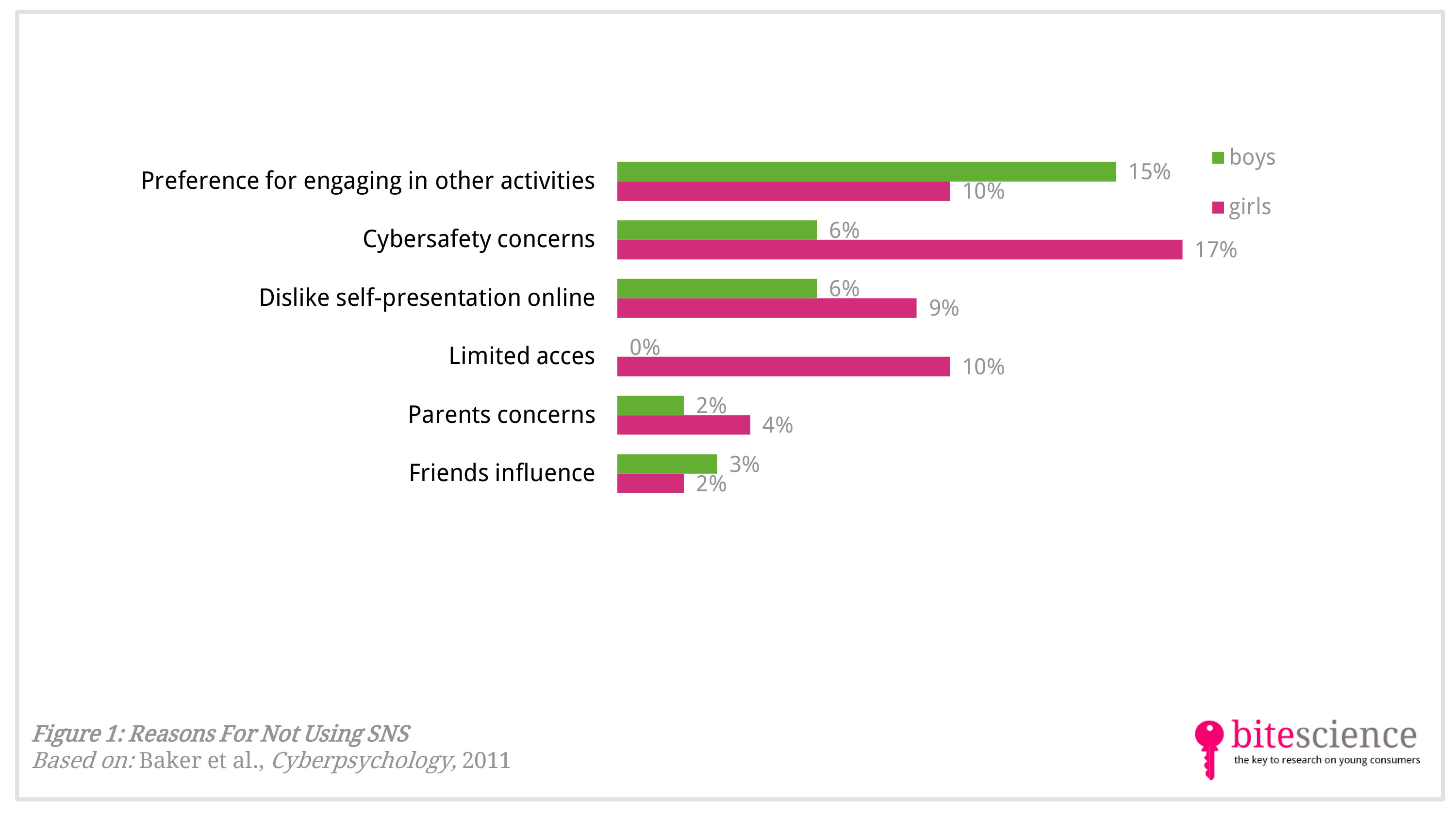
Nine Reasons Why Some Teens Are Not Active on Social Network Sites
According to a study in Cyberpsychology, Behavior, and Social Networking, not all teens engage in social network sites, such as Facebook and MySpace. The main reasons for them not being active is that they don’t see the benefits of these sites, believe it’s a waste of time, or prefer more conservative ways of communication.
Take aways
- Not all teens are active on social networking sites, such as Facebook and MySpace; 30% of Australian teens don’t engage in activities on these sites.
- The main reasons for them not being active are: they don’t see the benefits of these sites, believe it’s a waste of time, and prefer more conservative ways of communication. They also worry about being cyber bullied.
- To attract these inactive teens to social networking sites, side operators should communicate the benefits of using these sites (e.g., time saving activities) and underline its safety (e.g., protection of personal information and supervision of cyber bullying)
Study information
The question?
What are the main reasons why teens are not active on social networking sites?
Who?
229 13- to 18-year-olds (mean age: 14.64; 98 boys, 131 girls). Sixty-nine of the participants were inactive on social networking sites (40 boys, 29 girls).
Where?
Australia
How?
The participants completed a questionnaire including questions about their demographic background and social networking site behavior. The 69 participants who indicated that they were not active on social networking sites were asked to list reasons for not using these sites.
Facts and findings
- There are three main reasons why teens are not active on social networking sites:
- They don’t see the benefits of these sites (51%).
- They believe it’s a waste of time (42%).
- They prefer other, more conservative ways of communication (41%).
- Other reasons are:
- They prefer doing other things (25%).
- They worry about the negative side effects (e.g., cyber bullying; 23%)
- They don’t like to present themselves online (15%).
- They are unable to use the Internet (e.g., due to limited access; 10%).
- Their parents are worried about the negative side effects (e.g., cyber bullying; 6%).
- They don’t have friends who are active on these sites (4%).
- 30% of the participating teens were not active on social networking sites.
- More boys (41%) than girls (22%) did not engage in social networking sites.
